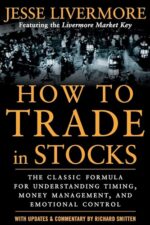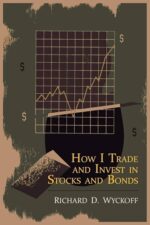The Stock Market By Rik W. Hafer and Scott E. Hein
$20.76
The stock market―the virtual place where corporations raise capital―has come to symbolize business more profoundly than any other entity or institution. This book provides a glimpse into the history, development, regulation, and increasing importance that the stock market plays in business and economic growth, as well as the investment strategies of individuals―in the U.S. and around the world, including Europe, Japan, Hong Kong, and emerging markets in the developing world that are rapidly integrating into the global economy.
Introduction:
Stocks and the markets in which they are traded are important parts of our personal finances and national economies. Today more people than ever own stocks directly, or indirectly through mutual funds, 401k programs, or pension plans. In the bigger picture, stock markets offer individuals and institutions a means to build wealth or reduce risk of financial loss. The increasingly complex web of financial transactions that characterize today’s economy often puts stock markets at the center of economic booms and busts. More and more, everyone looks to ‘‘the market’’ for a signal on where the economy is headed.
Stocks represent a retirement nest egg for households and a source of financing for businesses. Without the availability of stocks and the development of financial markets, there would not have been the substantial growth in new businesses created or the growth in our economy. It is, therefore, important for everyone to have a good understanding of stocks and stock markets.
What is a stock? This may sound simple, but it is a useful question to get the discussion rolling. Pick up a finance textbook and it will say that a stock is a financial asset to its owner. It also will say that a stock is a claim against the firm that issued it. Both are correct. When a company issues stock, it acquires funds from those who initially purchase it. Firms sell stock to expand their operations, using the funds to, say, build a new factory or launch a new product line. Once the stock is purchased, however, the firm actually gets no additional funds when the stock is traded over and over. That is, when someone calls a broker and buys a share of Google, the money spent is simply transferred to someone who has decided to sell a share of Google. Once stocks are publicly traded, the issuing firm receives no additional funds.
Contents:
- A Brief History of the U.S. Stock Market
- Stocks in Today’s Economy
- Today’s Stock Market in Action
- Recent Innovations in Stocks and Stock Markets
- Regulation of the Stock Market
- Stock Markets Abroad
- Summing It Up
The Stock Market By Rik W. Hafer and Scott E. Hein pdf
| Author(s) | |
|---|---|
| Pages | 169 |
| Format | |
| Publication Year | 2007 |
3 reviews for The Stock Market By Rik W. Hafer and Scott E. Hein
Only logged in customers who have purchased this product may leave a review.










Emilio Wilson (verified owner) –
One of a seven-volume set intended to promote economic literacy amongst a general readership; this work presents an overview of the history and basic operations of the stock market. Hafer and Hein present chapters describing the development of the US stock market, discussing the role of stocks in the modern economy, examining different types of stock trades and instruments, introducing the topic of regulation, and surveying some foreign stock market developments.
Analia Matthews (verified owner) –
This succinct book is an excellent reference or introduction to the stock markets. Hafer and Hein use clear, precise writing to explain such fundamentals as the difference between initial public offerings (IPOs) and secondary markets, the trade-off between risk and return, the difference between dividends and capital gains, and the importance of diversification. The authors also cover basic investment strategies such as large cap versus small cap and growth versus value, the importance of expectations, and the efficiency of financial markets. One chapter presents a history of the US stock market from 1792 through the present, and another is devoted to foreign stock markets. Hafer and Hein even include brief explanations of derivatives, exchange traded funds, and hedge funds. Readers who know little, if anything, about stock markets will find this concise book a valuable introduction and overview. Highly recommended. Any basic collection on investments and the stock market.
James Shields (verified owner) –
This book has changed my life! This is just what I was looking for. If you are in the market to learn the basics of investment, this is your book. The glossary is a go to tool I use often.